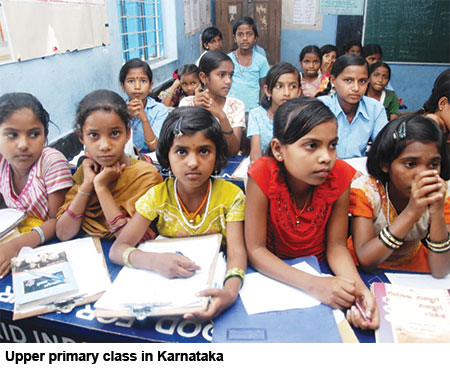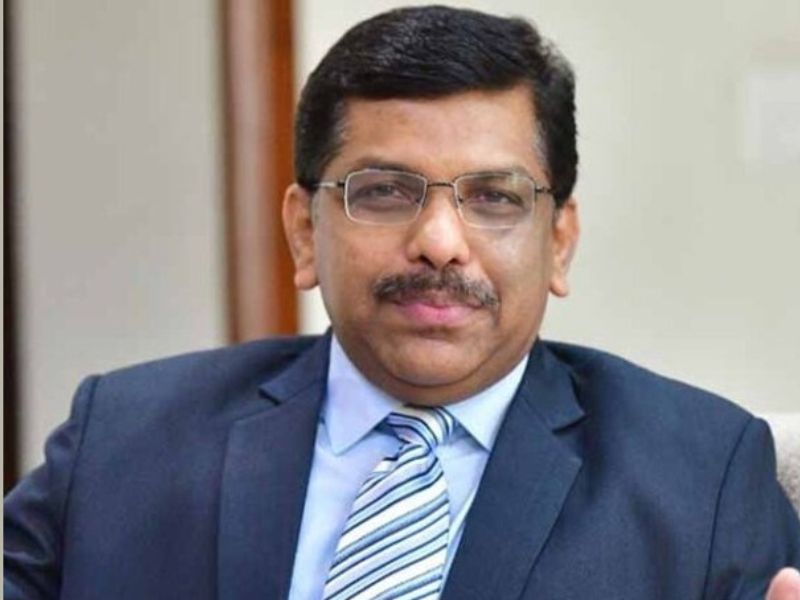 Over 50,000 government primary and higher primary school teachers in Karnataka struck work on July 9. They were — and continue — protesting an amendment made by the state government to Rules framed under the Right of Children to Free & Compulsory Education (RTE) Act, 2009, two years ago.
Over 50,000 government primary and higher primary school teachers in Karnataka struck work on July 9. They were — and continue — protesting an amendment made by the state government to Rules framed under the Right of Children to Free & Compulsory Education (RTE) Act, 2009, two years ago.
According to Chandrasekar Nuggi, the Bangalore-based general secretary of the Karnataka State Primary Teachers’ Association (KSPTA), in 2017 classes I-IV in government schools were categorised as lower primary and classes V-VIII as higher primary after class VIII was brought under the ambit of the RTE Act’s definition of elementary education.
Following the redefinition of primary education, the state government began recruiting assistant graduate teachers for classes V-VIII under separate cadres and recruitment rules promulgated that year. Simultaneously, teachers who had been recruited with diploma in education (D.Ed) and Teachers Certificate Higher (TCH) qualifications were restricted to teaching in lower primaries (classes I-V) even if after joining government service they had acquired higher qualifications.
KSPTA office bearers contend that many teachers have acquired B.Ed and often Ph D qualifications after joining service. “Hitherto these teachers were permitted to teach all classes between I-VIII. But in 2017, the state government’s DPI (director of public instruction) issued a circular dividing teachers into lower and upper primary teachers on the basis of their qualifications at the time of commencement of service. Many of our teachers have acquired higher qualifications and experience of teaching in upper primaries. Therefore, the DPI’s order is a demotion and humiliation for them. It’s not acceptable to the association,” explains Satish Javaregowda, director of KSPTA.
However, spokespersons of the DPI’s office say that the RTE Rules framed way back in 2012, clearly specify that only B.Ed teachers can teach higher primary classes, with teachers with graduation plus B.Ed teaching classes VIII-X. “Now to improve learning outcomes of upper primary classes V-VIII, teachers must have postgrad B.Ed degrees,” explains M.P. Madegowda, commissioner in the office of DPI, Bangalore.
Moreover, Madegowda makes a distinction between teachers who have acquired higher qualifications online and in traditional bricks-and-mortar institutions. “Most of the agitating teachers have obtained higher qualifications through distance education whose quality is suspect. We are insisting on traditional B.Ed education as qualification,” adds Madegowda.
Meanwhile, as we go to press, there are signs that a mid-way compromise solution is in the offing. The DPI’s office is reportedly ready to accept that all teachers with “genuine postgrad B.Ed qualifications” will be eligible to teach higher primary classes.
But the compromise agreement needs to be implemented soon. KSPTA leaders warn that if the DPI doesn’t recast the cadre and recruitment rules of 2012, teachers in all of Karnataka’s 43,000 government primary schools will escalate their agitation. “We are fed up with assurances. We want a clear decision from the state government. If the government fails to issue revised cadre and recruitment rules before September 4, we will boycott Teachers Day celebrations on September 5. And the next day, we will seize Vidhana Soudha, the seat of government in Bangalore,” says Javaregowda.
Implementation of the compromise agreement has been in abeyance because of political instability in Karnataka (pop. 63 million) which resulted in the resignation of chief minister H.D. Kumaraswamy and fall of the two-year-old Congress-JDS coalition government. Now the onus is on new BJP government of chief minister B.S. Yediyurappa to apply early closure to this contentious issue.
Shrivibhavna (Bangalore)
























